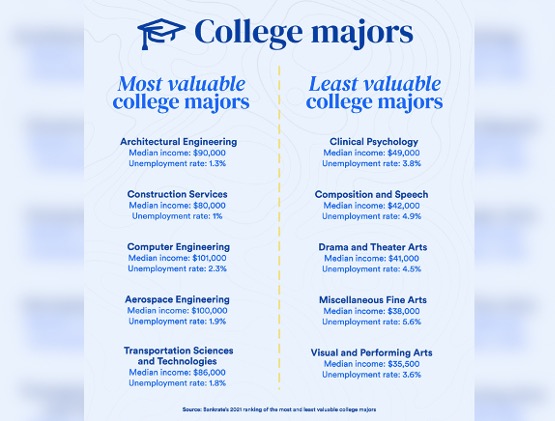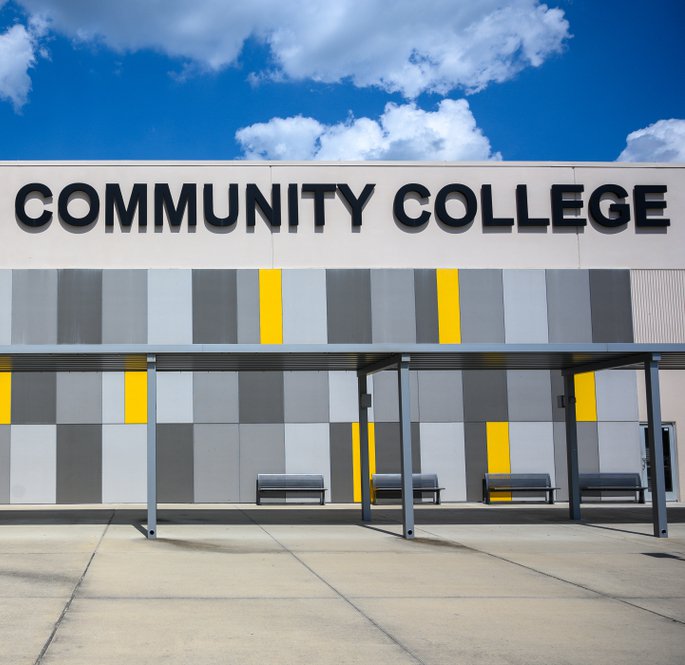It is more important than ever for families and students to figure out whether or not college is the best option for their future. Between rocketing costs and heavy student loan debt, many families are questioning the value of a college education.
As a result more and more families have been opting out of college entirely, and the percentage of college enrollment is down. So let’s take a deep dive into whether or not the college is worth the return on investment or if it is worth just skipping entirely. It seems that the answer is quite subjective and there are a few factors to take into account before deciding. Read below to understand our assessment.
Social and Economic Mobility

The main reason to get a college degree is for upward mobility in the social and economic ladder. What one must weigh all the options towards whether a degree is worth the time and money and will position them in a better place than they had started.
This question is particularly important for first generation college students, who have not had the path paved for them by generational experience.There are many subjective factors to take into account when weighing one’s options.
How Much More Does a Person With a Bachelor’s Degree Earn?

Accordinging to a report done by CNBC, a person holding a Bachelor’s degree typically earns 84% more than a person who only holds a highschool diploma. Apparently, the higher the level of education, the higher the payoff in the long run.
However, when the areas of study are broken down and analyzed, the difference in earning and return on investment is striking. So it may depend more on what type of degree you’re investing in to truly understand if college is worth it.
Best Paying College Majors

So what are the best paying college majors? Apparently, most of the best college majors are mostly engineering majors. This is based on the median salary within five years of a student’s graduation.
Aside from the various engineering majors (computer engineering at the top), computer science also ranks for one of the best return on investment majors, at number five. This is pretty limited for those who are not interested in engineering. So what are the worst paying college degrees?
Worst Paying College Majors

The bottom 10 majors are mostly liberal art degrees. They all pay less than $40,000 in wages directly after college. The very worst major to study, based on the median salary five years after graduation, is Family and Consumer Services, which has a median income of $32K.
The better of the bottom 10 degrees are majors in the Fine Arts as well as Leisure and Hospitality, Miscellaneous Biological Science, English Language, and Foreign Language, which all tied for $38K a year.
Breaking It Down

To compare, a minimum wage job that is paying their workers $15 an hour comes out to be about $31,200 in yearly wages if they are working for 40 hours every week. This pay is nearly the same amount that one would make with a college degree in Family and Consumer Sciences.
Family and Consumer Sciences ranks as the worst major to study based on the median pay within five years after graduation. For majors such as Family and Consumer Sciences, Performing Arts, General Social Sciences, and Social Services, they pay less than the median salary of $35,805 for U.S. full time workers regardless of education.
College Majors Offer Greater Earning Potential

Regardless of the above statistics, college majors still offer greater earning potential than a high school degree. The median age for college graduates aged 22-27 is $52K compared to the median wage of $30K for workers who do not have a college degree.
More importantly, college graduates’ salaries grow over time, regardless of their major. The tracking of mid-career ages found that between 35-45 the average pay for all majors goes from $46,981 to $74,123 in that time.
Choice In Major Is Perhaps The Greatest Factor

When examining whether or not one should invest the time and money into a college education, one needs to be careful what they are choosing to study and where they are choosing to study it. It is important to have some idea of where the degree could take you.
Direction and planning goes a long way along the path of college. Picking a with better earning potential will help the return on investment significantly.
Community College First

Another thing to consider is the cost of entering a four year university directly after high school as opposed to going to a community college first. Attending a community college for the first two years of your four year education allows you to transfer your college credit to the four year that you transfer into.
This is a fantastic method to get your education and also save on finances, as community college is significantly less expensive than a university.

